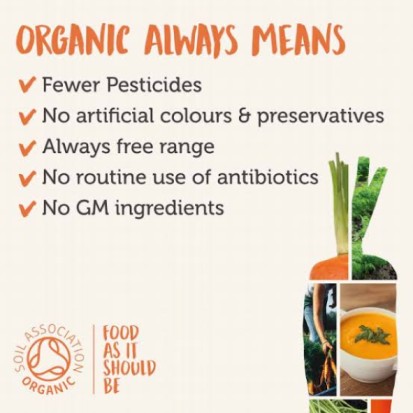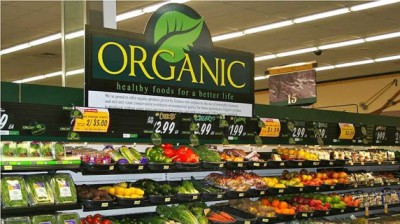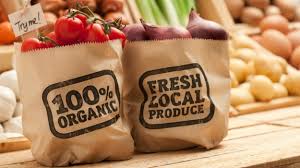Organic Food – A New Gen Concept
Organic food is considered to be a new age concept on which the whole generation is investing in and is dependent on.
With the increasing awareness in the population regarding the harmful effects of pesticides which are deeply loaded on the body of the vegetables and the process of adulteration in ready-made food, the market for organic foods is expanding and flourishing and also is reportedly the highly consumed foods in today’s time.
Recommended Story – 10 Ideas for starting Small Scale Business in India
What is Organic Food?
In a simple definition, Organic food is basically food produced through methods that follows the standards of organic farming.

Though the organic farming techniques varies from one country to another but it features practices that promotes ecological balance, conserve biodiversity and cycle resources which is a similarity.
It restricts the usage of harmful pesticides and fertilizers and also does not follow any adulteration processes in making these foods.
Organic Food Business in India
Organic food business has truly opened many opportunities and has exploded the Indian market at the right time.
Organic food in India is a niche category and is expected to sweep across the nation heavily. With the increasing number of cases and incidents of food adulteration, consumer consciousness and increasing income especially the middle class families has facilitated high demand and high consumption of organic food in India.

In a recent ‘India Organic Food Market Report 2018’ the market of Organic food business is expected to grow at CAGR of 25 per cent by 2023.
With such a high percent to which it is expected to grow, there is a tremendous scope and opportunity in venturing into organic food business in India.
Though there are still many challenges and things to keep in mind while venturing!
Things to keep in mind – Organic Food Business
1. Market Research
Before venturing in to any business, the market background check must be a priority. When it comes to the organic food market, people planning to venture must be aware that with the increasing demand there are still many growing cases of food adulteration, not only India but globally.
Even consumers today are well aware and are conscious about healthy and safe foods and with the new food safety legislation which is continuously working towards improving and implementing new safety standards and also at the same time, consumers are willing to pay for organic foods due to the high disposable income, all these factors should be considered along with present market status thoroughly.
2. Understanding the Organic Food Audience

This generation is educated and smart and that is the reason why they make health as their priority thus by preferring to eat healthy food and by spending on healthy food products as they believe prevention is better than cure.
Therefore, understanding your target audience is important. Especially in India, as Indian consumers are always ready to experiment and adopt new trends especially which is beneficial for their health.
As health is a priority and consumers have better spending power and consciousness, the organic products are not just popular but also are finding their way into every consumer’s house. And with this MRPs have taken a backseat. The consumer of organic food is a more quality conscious than price conscious.
It’s important that the market for organic food is everywhere and also that everyone is a potential buyer though it is catching up big time in metros and educated class
3. Growth Opportunity of Organic Food Business
Organic foods are one of the few categories which will fall into high-scale, high-margin opportunity bracket.
The high-scale opportunity happens by the fact that the overall organic food consumption is not even 0.1 per cent of India’s $300 billion annual food consumption.
In the same way, India’s share in the $100 billion global organic food market is 0.2 per cent.
The high opportunity is also driven by the increase in the number of variety of organic foods coming in the market and the e-commerce facilitating the selling of each of these products through its medium.
This makes it a good business model to venture into. Also, what interests the investors is the organic supply chain which proves to be more efficient than conventional agri- businesses.
4. Organic Food Business Challenges and Policies
Though it has proved to be a profitable market to invest in, there are still many challenges that need to be faced and the policies and norms to keep in mind with respect to it.
- The supply chain is underdeveloped and the small farmers are mostly located in the hilly remote regions and tribal belts which makes it very difficult for them to access the market directly.
- There is also shortage of pack houses for storage which leads to spoilage as organic foods have to be stored under favourable conditions by considering all safety parameters.
- Also, the organic products need to be separately kept from the conventional products to avoid cross-contamination and this facility is still not being provided.
- As farmer converts the conventional chemical-based farming to organic farming, there is a heavy loss in yield as the chemical inputs are withdrawn.
- Lastly, there is an actual shortage of good quality organic inputs that eventually leads to increment in loss of yield.
Though a very profitable venture which has a shining and bright future, still understanding the complete market, audience, opportunities, potential threats, challenges and policy changes is very crucial. With such challenges included, one can still think of venturing into this fruitful venture as it has more opportunities than challenges.
Also Read – Famous Top 10 Nutritionists to Follow in India










